
The most effective way to ensure having intercourse when the female partner is at her monthly peak of fertility is to use a home monitoring system, such as the ClearBlue Home Fertility Monitor. Clearblue uses measurements of two hormones, estrogen and luteinizing hormone, to estimate ovulation, the woman's monthly release of an egg or eggs than can be fertilized by the sperm. Throughout the first half of the menstrual period, estrogen levels rise to stimulate growth of the uterus so it can receive a fertilized egg. Estrogen levels peak about two days before ovulation. There is also a steady rise in concentrations of luteinizing hormone, the hormone that tells the ovaries that it is time to detach the egg from its follicle. The Clearblue Fertility Monitor measures levels of both hormones in a urine sample taken when the user first gets up. When estrogen levels have peaked and luteinizing hormone levels have also peaked, it is time to have sexual intercourse so that the ejaculated sperm has an egg to fertilize.
Men increase their chances of becoming fathers by avoiding ejaculation for one to four days before having intercourse intended to accomplish conception. The volume of semen increases, and there is a corresponding increase in sperm count. It is neither helpful nor necessary to abstain from ejaculation at any time during a woman's menstrual cycle other than for up to four days before she ovulates. Pregnancy is more likely to result when women abstain from alcohol. Drinking during the first half of the menstrual period does not interfere with ovulation, but it may interfere with implantation of the fertilized egg into the uterine wall. Since women cannot know whether they have become pregnant until it's time for their next period, it's also a good idea to abstain from alcohol during the second half of the period, for the health of the embryo.



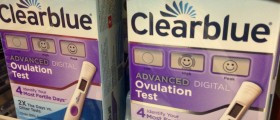
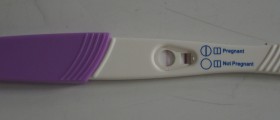
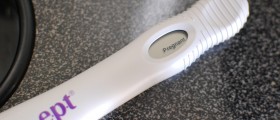


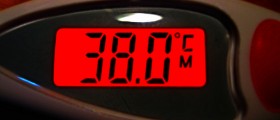
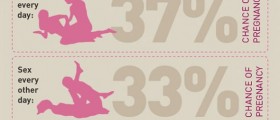






Your thoughts on this
Loading...